This hamburger is food and its real …… isn’t it? It has salad, bread, dairy, meat …. all things that are part of the recommended dietary guidelines. So what’s the big deal? Well…..the sad fact is that it is no longer simply food sourced from nature, but rather a highly processed chemical cocktail sourced from a factory!
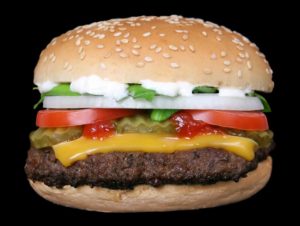
It is meat that comes from stressed and sick, pharmaceutically treated animals. Often cattle that are fed grain rather than grass which essentially inflames them or in agricultural terms fattens them up!
It is grains that are highly processed, often genetically modified and filled with all sorts of additives and preservatives, to ensure it will never go off.
It is vegetables that are treated with nasty chemicals, shipped across continents, and stored in cold storage systems for long periods of time, where they are then further treated with more chemicals to encourage ripening and preservation.
It is the dairy that comes from sad, sick cows and then is highly processed with further additives and preservatives.
This is why the food that makes up the vast majority of our food supply is simply no longer real.
So Where To Start?
The first golden nugget – It is all about the QUALITY of your food.
The quality of your food will dictate the quality of your health. The phrase “You Are What You Eat” could not be truer.
Let’s start by busting a few myths that might be slowing you down on your journey to eating better.
There is no shortage of experts that have done an awesome job of convincing us to be scared of salt, sugar, fat, and sunshine. Unfortunately, this has not been advice that has done us any good. Why? Because it is the quality of these things that is the problem, not the items themselves.
It is human nature to want to latch onto the latest quick fix to solving our problems. The stories come and go and the next fad is never far away, this is why it is important to understand that real food is ALWAYS the safer option, never has this been more blatantly revealed than through the whole butter v/s margarine hype.
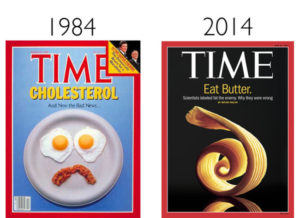
FEAR NOT, by the time you have finished reading this blog, and I know it is long (you have my blessing to go to make yourself a nice cuppa to enjoy whilst you keep reading), however, as I said, by the end of this post you will feel confident to not only start enjoying salt, sugar, fat and sunshine again but you can do it knowing that it is great for your health.
Why Good Quality Salt, Sugar, and Fat are necessary for good health, Why You NEED sunshine, AND Why Counting Calories is a waste of Your Valuable Time!!!
Here’s Why …..
Not all SALTS are equal – choose unrefined
Salt is critical for nerve transmission, muscular contraction, and is a strong natural antihistamine. Among other things salt clears up catarrh and congestion in the sinuses, makes bones firm, regulates sleep, can prevent varicose veins and spider veins on the legs and thighs and supplies the body with over 80 essential mineral elements.
So which salts should you choose?
Unrefined salts are sea salts (which should be grey in colour), and rock salts. There is now, however, some concern about sea salt due to the pollutants in our beautiful oceans. For this reason, I tend to buy Pink Himalayan Rock Salt which is readily available at your local supermarket or health food store.
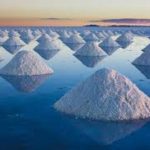
Not all SUGARS are equal – choose unrefined
The latest bad boy on the block is definitely sugar. This has culminated with the understanding that when they HAD to take the fat out of everything, it HAD to be replaced with some other form of flavour, otherwise we would have died from the blandness of food, so the obvious replacement was sugar. The result being that it is now estimated that the average Australian between the ages of 19 and 30 eats 40 teaspoons of sugar every day, this is not surprising as approximately 80% of all supermarket foods contain added sugar, and close to 100% of all take-away foods.
So how to avoid consuming so much sugar, and which sugars are ok?
Avoiding processed foods is the easiest way to avoid eating added sugar, eat foods that are as close to their natural state as possible. Foods that don’t require a label should make up at least 80% of your food intake (I would go for 90%), namely vegetables, meat, nuts, fruit and whole grains.
I buy rapadura and coconut sugar for baking at home. Rapadura is the pure juice extracted from the sugar cane (using a press), which is then evaporated over low heats, whilst being stirred with paddles, then sieve ground to produce a grainy sugar. It has not been cooked at high heats and spun to change it into crystals, and the molasses has not been separated from the sugar. It is produced organically and does not contain chemicals or anti-caking agents (1).
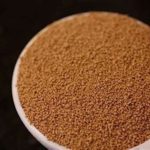
Not all FATS are equal – choose unrefined
Let’s start by agreeing that the low-fat movement is sooooo passé. By the very nature of being advertised as a ‘low-fat’ product, it is also advertising that it is probably high in sugar, as discussed above. So why do we NEED to eat fat?
Fat is essential for …….
- For brain development
- For the development of the nervous system
- It plays an important role in cushioning vital internal organs
- It is a vital source of energy
- It plays a role in insulating our bodies
- Healthy fats in a meal increase the feeling of satiety, reducing the quantity of food you need to feel full.
- In a meal, it also helps to regulate blood sugar levels, as foods that contain fat, will slow down the rate at which glucose is released into the blood
- It is vital for the transportation of fat-soluble vitamins – A, D, E, and, K.
- They are components of cell membranes
- Fats also play a role in the regulation of genes and hormones
However as mentioned not all fats are equal. The fats to AVOID are the man-made fats.
Man Made Fats are found in items (I refuse to call it food) such as Margarine, and most processed foods such as bread, cakes, and biscuits. Trans-fat, although it can be found naturally occurring in some milk and meats; the primary dietary source is from the partially hydrogenated oils found in most processed foods. Trans-fats have been implicated in cognitive dysfunction, mental health disorders, coronary heart disease, diabetes, abnormal fetal growth rates, and cancer, to name but a few. In June of this 2016, the FDA took a step to remove artificial trans-fat from the food supply in America. This step is expected to reduce coronary heart disease and prevent thousands of fatal heart attacks every year. Now we just need Australia to come to the party! It is also important for you to be aware of Vegetable Oils. I am not sure why they are called vegetable oils as they are actually seed oils. The most common are rapeseed (canola oil), soybean, corn, sunflower, safflower, and peanut. Unlike coconut oil or olive oil that can be extracted by pressing, these ‘vegetable’ oils have to be extracted in unnatural ways and have been shown to be very destructive to your health.
So let’s load up on nourishing fat from natural foods such as avocados, nuts, cold pressed oils, whole eggs, chia seeds, fatty fish (wild caught, not farmed), coconut, natural full-fat yoghurt, and don’t forget dark chocolate!
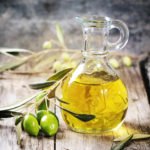
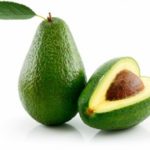
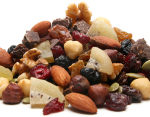
Good Old Sunshine – You Do Need Some!
The powers that be have done an awesome job of creating a generation of people who now will avoid sun exposure, unfortunately, it is to a degree that is actually harming our health. If we totally avoid the sun and strictly follow public recommendations, we will eventually develop vitamin D deficiency. Obviously too much sun is going to cause a problem, but conversely, not enough can be equally detrimental. To ensure you are getting the best advice possible on this I would suggest you check out the work of founder & director of the Vitamin D Council, Dr. John Cannell. Here is a link to his website.
Counting calories – what a colossal waste of time!
WHY?? It is simple: Calories are NOT created equal, and the same caloric intake from a store-bought muffin will not have the same effect on your health and/or desired weight loss as a bowl of veggies. By the very nature of this topic, it is impossible NOT to discuss another MYTH – and that is the ‘energy in’ versus ‘energy out’ myth. To suggest that people are fat simply because they are lazy and don’t run around enough to burn off the calories they have ingested is a whole load of BS. Your weight is predominantly determined by what you put in your mouth, of course moving your body is critically important for almost every aspect of your health, however, you CAN NOT eat a crappy diet, run around lots and expect to lose weight and keep it off (Yeah yeah I know there is always an exception, however, it is not the rule!) . Essentially >> You do not get fat from eating too many calories you get fat from eating the wrong type <<.
So what to do?
Focus on eating foods with the right type of calories, not on counting them. Whenever possible, choose organic. Eat Fresh vegetables, good protein, natural fats, a few whole grains (not more than 2 serves per day = 2 slices of bread), and plenty of fresh filtered water. Eating natural fats will help with satiety and therefore reduce the quantity of food you need to eat. Those that have a carbohydrate-rich diet need to eat far more than those that rely on natural fats for energy.
(NOTE: I must confess here and now, that for my weight loss client I do recommend calorie counting of sorts, however, it is very specific and carefully researched and not something that I recommend for maintenance, simply for my weight loss clients in a carefully guided prescription.)
The perfect diet! Da da!
Golden Nugget # 2 – There is no such thing as a perfect diet for everybody. (Sorry!)
We are all individuals with differing needs, tolerances, and health profiles. However, there are some guidelines that will ensure you are on the right track. AVOID foods that fall under the following categories – if you can’t pronounce it, if it was produced in a factory rather than in nature, if it is genetically modified, if it is labeled low fat, or if it requires marketing and promotion – don’t eat it! Or at least pop it on the occasional list rather than on your everyday shopping list.
Golden Nugget # 3 – You can still have your cake and eat it too!
We don't need to feel deprived in our food choices, all the yummy things that bring you joy can still be on your list … cake, chocolate and yes, hamburgers. It is simply a matter of ensuring the ingredients are going to serve your body well and support your bodies innate intelligence and driving desire to thrive.
With Passion, Compassion, Humour, and Style
x Edwina
